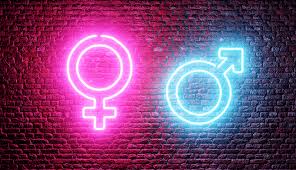Introduction
Sexuality is an intrinsic aspect of human existence, influencing our behaviors, relationships, and society at large. In her book “Sex: A Natural History,” Joann Ellison Rodgers provides an in-depth exploration of the biological, evolutionary, and cultural dimensions of human sexuality. Drawing on evidence from various scientific disciplines, Rodgers offers a detailed analysis of the forces that shape our sexual behaviors and how these behaviors have evolved over time.
The Biological Basis of Sexuality
Rodgers begins by examining the biological foundations of sexuality. She explains how sex is rooted in our genetic makeup, with specific genes and hormones playing crucial roles in determining sexual characteristics and behaviors. The book delves into the molecular mechanisms that govern sexual differentiation, explaining how the interplay between genes and hormones leads to the development of male and female sexual traits.
Rodgers also explores the neurobiological aspects of sexuality, highlighting how the brain regulates sexual desire and behavior. She discusses the role of neurotransmitters such as dopamine and serotonin in modulating sexual arousal and satisfaction, providing insights into the complex neurochemical processes that underlie our sexual experiences.
Evolutionary Perspectives
A significant portion of Rodgers’ work is dedicated to understanding the evolutionary roots of human sexuality. She posits that many aspects of our sexual behavior are shaped by evolutionary pressures aimed at ensuring survival and reproduction. For instance, the book discusses how mate selection and courtship behaviors have evolved to maximize reproductive success.
Rodgers presents compelling evidence from studies on various animal species, drawing parallels between human and animal sexual behaviors. She argues that many of the sexual strategies employed by humans, such as mate choice and competition, are deeply rooted in our evolutionary past. This evolutionary perspective helps explain why certain sexual behaviors, such as infidelity and jealousy, are prevalent across cultures.
Cultural Influences
While biology and evolution play significant roles in shaping human sexuality, Rodgers also emphasizes the importance of cultural influences. She explores how societal norms, traditions, and beliefs impact sexual behavior and attitudes. The book examines the historical evolution of sexual norms, tracing how cultural shifts have influenced perceptions of sexuality over time.
Rodgers highlights how modern media and technology have transformed sexual behavior and attitudes. She discusses the impact of pornography, social media, and online dating on contemporary sexual relationships, providing a nuanced understanding of how cultural changes are reshaping human sexuality.
The Battle of the Sexes
One of the key themes in Rodgers’ work is the dynamic interplay between male and female sexual strategies. She describes the “battle of the sexes” as a complex game of one-upmanship where both sexes employ different strategies to achieve their reproductive goals. However, Rodgers argues that these strategies are ultimately complementary rather than antagonistic, designed to facilitate cooperation and bonding between partners.
The book explores various aspects of male and female sexuality, including differences in sexual desire, mating preferences, and parenting behaviors. Rodgers provides a balanced view, acknowledging the unique challenges and advantages faced by both sexes in the context of reproduction and parenting.

Modern Implications
Rodgers’ exploration of human sexuality has profound implications for understanding contemporary sexual issues. By uncovering the biological and evolutionary roots of our sexual behaviors, she provides valuable insights into modern sexual relationships and challenges. The book offers a scientific basis for addressing issues such as sexual health, relationship dynamics, and sexual education.
Rodgers’ work also underscores the importance of a holistic approach to studying sexuality, one that integrates biological, evolutionary, and cultural perspectives. Such an approach can help policymakers, educators, and healthcare professionals develop more effective strategies for promoting sexual well-being and addressing sexual problems.
Conclusion
“Sex: A Natural History” by Joann Ellison Rodgers is a comprehensive and insightful exploration of human sexuality. By examining the biological, evolutionary, and cultural dimensions of sexual behavior, Rodgers provides a nuanced understanding of the forces that shape our sexual lives. Her work highlights the complexity of human sexuality and the need for an interdisciplinary approach to studying and addressing sexual issues.
This book is an invaluable resource for anyone interested in the science of sex, offering a rich blend of scientific evidence and thought-provoking analysis. Whether you are a student, researcher, or simply curious about the nature of human sexuality, Rodgers’ book is sure to provide a deeper understanding of this fundamental aspect of human existence.








